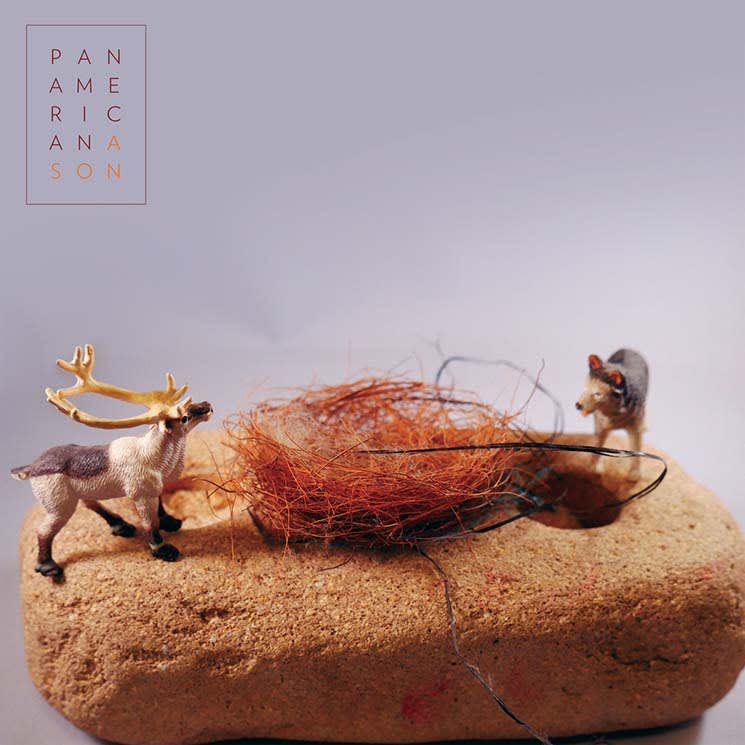Mark Nelson's 25 years of making music, from the austere post-rock of his Virginia trio Labradford to the most recent ambient keyboard experiments with duo Anjou, have brought him to this introspective and somewhat unexpected place exploring the roots of his inspirations.
Pan•American, Nelson's self-curated and often solo project, initially concentrated on a minimalist electronic sound akin to the techno of early '90s Basic Channel. Eventually, collaborators folded in acoustic instrumentation and sparse jazz structures for a series of focused experiments that reimagined the group's sound, album to album. A Son, Nelson's first revisiting of the project since 2013, strips away much of the original structure, concentrating on the acoustic elements and human voice.
Framed by two brief dulcimer instrumentals, the album most resembles a folk time-capsule from an alternate dimension, where June Tabor and Brian Eno formed a Depression-era Roxy Music. Songs about trains, family troubles and fading memories are delivered in Nelson's quiet whisper-sing style, amidst a spare assembly of unfussy guitar and muted electronics. The direct confessional tone is countered by the untethered and timeless feel of the recording, delivering slow, steady laments that are fading like a box of old Polaroids.
The album closes with a multi-dimensional interpretation of "Shenandoah," doing triple duty as a folk standard, an ode to Virginia and a kind of melding of styles from all eras of Nelson's music. It marks A Son as both a departure from the expected modern/postmodern/future-possible sound he is usually credited with, but also an arrival at its very beginnings.
(Kranky)Pan•American, Nelson's self-curated and often solo project, initially concentrated on a minimalist electronic sound akin to the techno of early '90s Basic Channel. Eventually, collaborators folded in acoustic instrumentation and sparse jazz structures for a series of focused experiments that reimagined the group's sound, album to album. A Son, Nelson's first revisiting of the project since 2013, strips away much of the original structure, concentrating on the acoustic elements and human voice.
Framed by two brief dulcimer instrumentals, the album most resembles a folk time-capsule from an alternate dimension, where June Tabor and Brian Eno formed a Depression-era Roxy Music. Songs about trains, family troubles and fading memories are delivered in Nelson's quiet whisper-sing style, amidst a spare assembly of unfussy guitar and muted electronics. The direct confessional tone is countered by the untethered and timeless feel of the recording, delivering slow, steady laments that are fading like a box of old Polaroids.
The album closes with a multi-dimensional interpretation of "Shenandoah," doing triple duty as a folk standard, an ode to Virginia and a kind of melding of styles from all eras of Nelson's music. It marks A Son as both a departure from the expected modern/postmodern/future-possible sound he is usually credited with, but also an arrival at its very beginnings.
